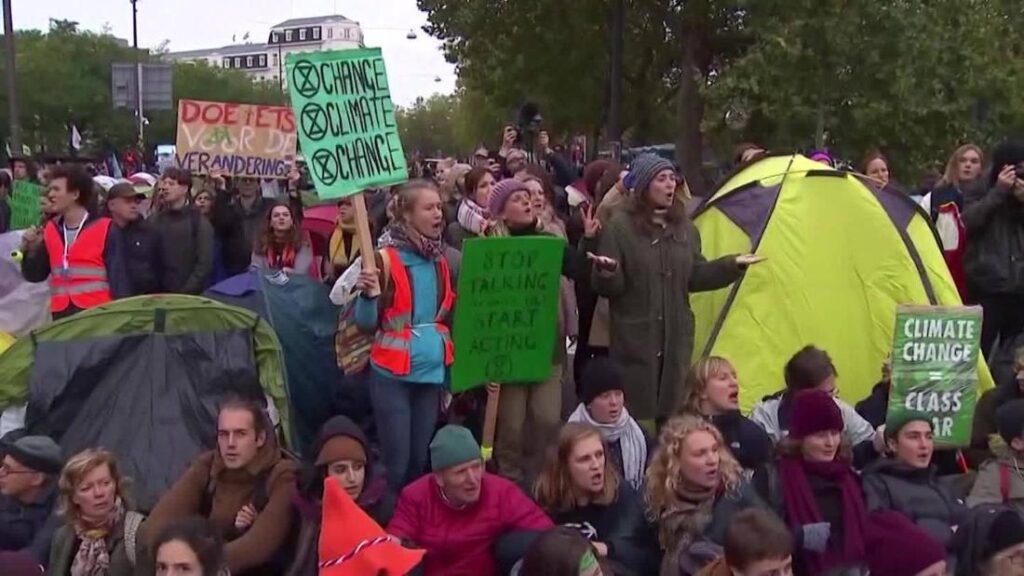Australia has gained an unexpected global distinction: leading the world in arresting climate and environmental protesters. According to a recent study from the University of Bristol, over 20% of climate-related protests in Australia result in arrests—more than three times the global average of 6.3%. This startling statistic raises questions about the country’s approach to environmental activism and its implications for democracy and climate action.
A Global Outlier in Protest Policing
The study compared arrest rates across 14 countries, including the United States, United Kingdom, and Norway. While the U.S. and UK have notable arrest rates of 10% and 17.2%, respectively, Australia’s rate of 20% stands out.
Despite the high arrest rate, Australia is relatively free from the violent repression seen in countries like Brazil, the Philippines, and India, where environmental defenders face significant physical danger, including killings and disappearances. Between 2012 and 2023, over 2,000 environmental defenders were killed globally, with large numbers in Brazil (401) and the Philippines (298).
The contrast between Australia’s legal suppression of protests and the violence elsewhere suggests a disturbing trend: where physical violence is absent, legal and political tools are used to stifle dissent.
The Role of New Anti-Protest Legislation
Australia has introduced five pieces of legislation since 2019 aimed at limiting public demonstrations. These laws have been criticized for targeting climate activists, with claims that they undermine the right to peaceful protest.
For example, New South Wales (NSW) introduced laws specifically targeting what it called “anarchist protesters.” Critics argue these laws disproportionately affect climate activism groups like Extinction Rebellion, which often use civil disobedience tactics as part of their strategy.
These legislative moves align with a broader global trend. The study revealed that 22 pieces of legislation designed to curb protests have been introduced in the 14 countries analyzed.
Corporate Influence and Repression
One key driver of this trend in Australia is the fossil fuel industry. Reports from Australia’s Environmental Defenders Office (EDO) and Human Rights Law Centre point to the “unregulated political influence” of fossil fuel companies as a factor in the systemic repression of climate activism.
The fossil fuel industry has long been a cornerstone of the Australian economy. However, its influence over policy decisions raises concerns about the balance between corporate interests and democratic freedoms.
A Global Perspective on Environmental Protest
The study notes an alarming escalation in the criminalization of environmental protests worldwide, characterizing it as a threat to both environmental progress and liberal democratic values.
Arrest vs. Violence Trends
Interestingly, countries with higher arrest rates, such as Australia and Norway, tend to have fewer instances of violence against protesters. Conversely, nations with low arrest rates, like Brazil and India, report higher levels of violence, including killings and disappearances.
This dichotomy highlights how governments choose to suppress dissent. While Australia’s methods are less violent, they are no less effective in discouraging activism.
The Role of Civil Disobedience
Groups like Extinction Rebellion are intentionally challenging these trends by using tactics designed to provoke arrests. This strategy aims to draw public attention to environmental crises while emphasizing the democratic right to protest.
The increasing criminalization of such actions underscores a deeper problem: rather than addressing the climate issues being protested, governments are focusing on suppressing the voices demanding change.
What This Means for Australia’s Democracy
The suppression of climate activism in Australia poses a dual threat. It not only undermines efforts to combat climate change but also jeopardizes democratic freedoms.
As the world faces a “triple environmental crisis” of climate change, biodiversity loss, and pollution, the need for public engagement and advocacy has never been greater. Suppressing protests risks silencing the very voices pushing for solutions to these crises.
Addressing the Trend
To combat this troubling trend, Australia must:
- Reassess Anti-Protest Legislation
Laws targeting peaceful protesters must be reevaluated to ensure they do not infringe on democratic rights. - Increase Transparency in Corporate Influence
The role of fossil fuel companies in shaping policy should be scrutinized to reduce undue influence. - Support Environmental Advocacy
Governments should work collaboratively with activists to address climate challenges rather than stifling their efforts.
Australia’s status as a global leader in arresting climate protesters is a wake-up call. While the country avoids the violent suppression seen in other nations, its reliance on legal and political repression is equally concerning.
Addressing the climate crisis requires open dialogue, collaboration, and public participation. Silencing dissent through arrests and legislation only delays the action needed to protect our planet and democracy.











